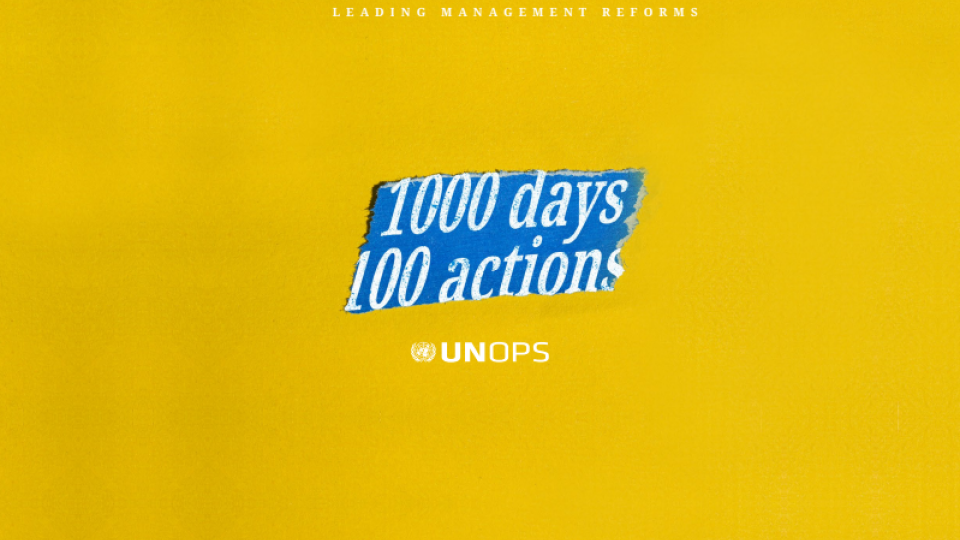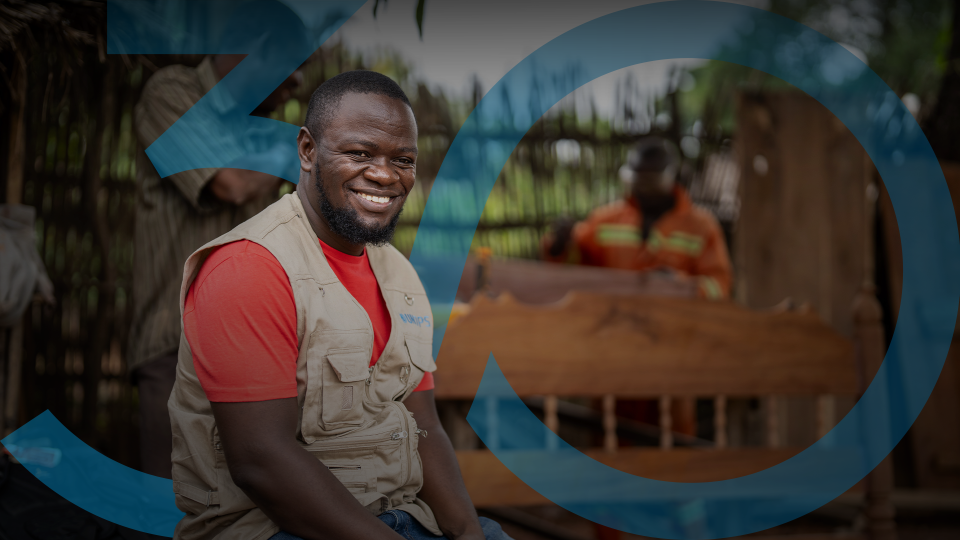The United Nations Office for Project Services (UNOPS)
History and evolution
For 30 years, working across humanitarian, development and peace operations, UNOPS has been a driving force in delivering practical solutions to the world's most pressing challenges – and has helped ensure the work of the UN is carried out efficiently, effectively and sustainably.
Origins
In 2024, UNOPS delivered $2.7 billion worth of projects, compared to $383 million in 1995.
UNOPS origins trace back to 1973, and until 1994, the ‘Office for Project Services’ (OPS) was part of the UN Development Programme (UNDP).
Details on UNOPS origins are available in official archive documents from 1994, including the proposal of the Secretary-General DP/1994/52, and the report of the Executive Director for establishing a separate and identifiable entity DP/1994/62.
On 1 January 1995, UNOPS was established as a separate, self-financing entity within the UN system by way of UN General Assembly resolution 48/501, against a backdrop of widespread calls for the UN system to reduce duplication, improve efficiency and effectiveness, and establish more businesslike approaches to cost and quality of service.
As UNOPS marked the end of its first year of operations as an independent UN entity, its total annual delivery reached $383 million. Two years later, that figure would grow to over $500 million, as demand for UNOPS implementation services – including from government partners – and recognition of UNOPS comparative advantages within the UN system continued to increase.
By 2025, as UNOPS celebrates its 30th anniversary, average delivery over the past 5 years has been close to $3 billion each year.
Mandate
In 2024, UNOPS worked with 200+ partners, compared to 10+ in 1995.
Grounded in the principles of the UN Charter – peace, justice, human dignity, tolerance and solidarity – UNOPS was tasked with undertaking implementation as its core expertise, working in complementarity with the UN system across all areas – development, humanitarian and peace and security – one of the factors which make UNOPS a unique organization in the UN family.
In 2009, the UNDP/UNFPA Executive Board directed UNOPS to extend the provision of its services to UN system agencies, funds and programmes as well as to international and regional financial institutions, intergovernmental organizations, donor and recipient governments, and non-governmental organizations.
UNOPS mandate, reconfirmed by the UN General Assembly in 2010, established UNOPS as a demand-driven, non-programmatic service provider and a self-reliant operating model. This resolution reaffirmed UNOPS role as a central resource for the UN system, and encouraged UNOPS to enhance engagements as a service provider to partners across development, humanitarian and peacekeeping efforts.
In 2023, in conjunction with a series of management reforms, the UNDP/UNFPA/UNOPS Executive Board welcomed UNOPS return to this General Assembly mandate of providing infrastructure, procurement and project management services. It encouraged UNOPS to analyze and report on contributions of service delivery to the operational results of its partners, the expansion of partners’ implementation capacity, as well as the achievement of the 2030 Agenda and the Sustainable Development Goals.









